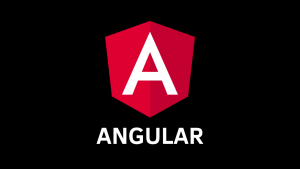Best Practice Tips for AngularJS

When it comes to JavaScript libraries for front end development, AngularJS is one of the best. Supported and developed by Google, it allows developers to create efficient web applications in a relatively short space of time. Whether you’re new to using the framework or a seasoned professional, it’s always wise to keep up to date with the best practices. While taking an AngularJS course and following tutorials is definitely recommended, below are some tips that every developer should take into account.
#1. The Default Directory Structures Can Be Reworked
AngularJS’s default directory structures can be reworked to suit your needs. In fact, while the default directories may work fine for small apps and websites, they’re not especially ideal for anything that requires more than a standard template. Anyone who is developing a platform that requires more than ten files should definitely consider reworking the directory structure. This will make it easier to find files for specific modules, and also save you time as well.
#2. The Track By Feature is Useful for Repeated Lists
AngularJS enables developers to write lists from objects; however, whenever you need to work with the DOM, it’s easy for code to slip and become less efficient. While it’s impossible to avoid working with DOM, it is possible to minimize the number of times it needs to be interfaced. One way to do this is by using the ‘Track By’ feature. This limits the number of times a list needs to be re-rendered, making each procedure it handles much more efficient.
#3. Dependency Injection Is Worth Using if You’re an Advanced Developer
Developers that have worked with other MVC applications have likely worked with dependency injections before. In simple terms, this relates to editing the controller code without directly affecting the service. It’s especially ideal for enterprise apps where the code needs to be changed on a regular basis, and when several developers are working on the same project. It can be very hard to understand for those who don’t have a lot of experience with AngularJS, however, so taking a course or reading up more on this is recommended.
#4. Don’t Use Any Old Testing Tools
There are a lot of options available to help developers test their frameworks; however, it’s definitely worth researching into your options as opposed to using the first tools you come across. As Angular is developed by Google, the majority of developers recommend using ng-inspector. This is a Chrome-specific tool that is common within the community and safe to use. It can help you to find errors in code, while also enabling you to test, review, and debug the applications that you make. It also tracks the scope for you. While there are plugins for Firefox and other browsers, they’re not the most recommended.
Working with AngularJS does require a certain amount of practice to perfect. The tips above are all worth considering, though, and can help you to improve your skills, knowledge, and the end product.






